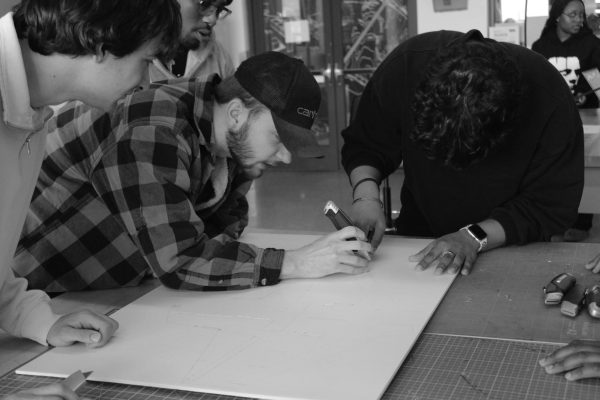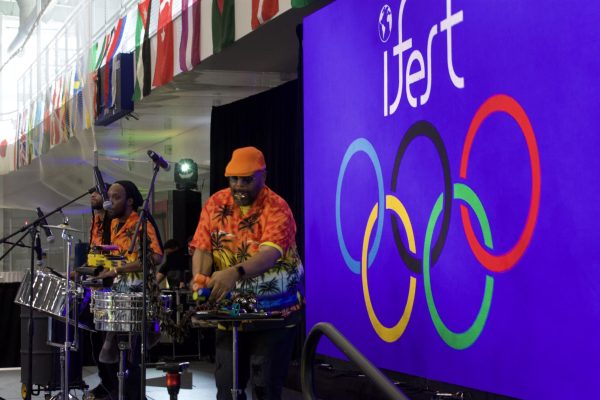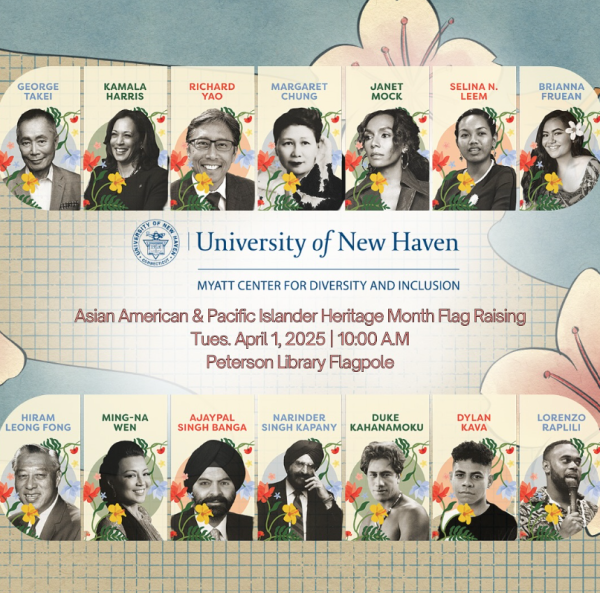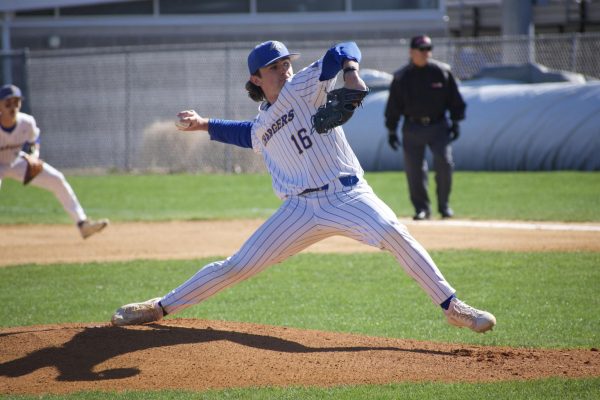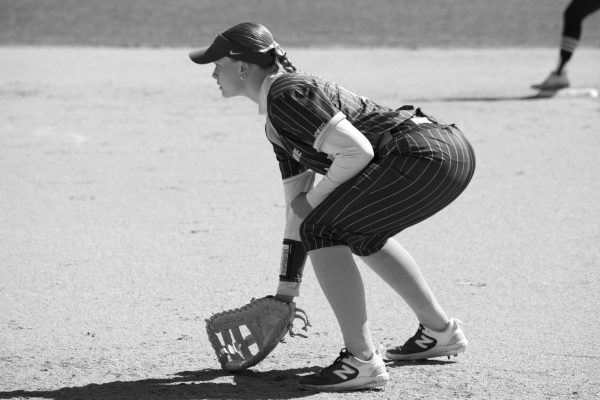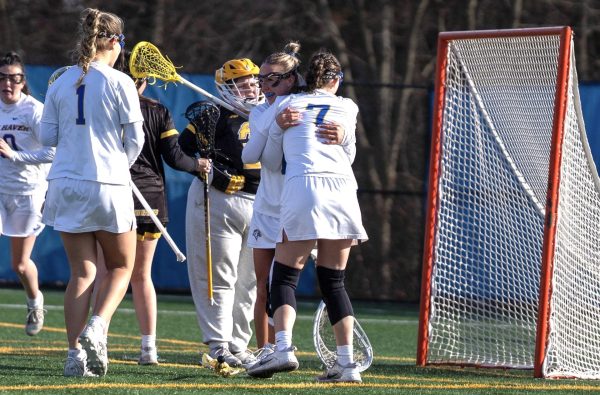Muslim Student Association leads campus in observance of Ramadan
Graphic courtesy of Charger Bulletin/Andrea Rojas.
A crescent moon over Maxcy Hall, signifying the start of Ramadan,
The ninth month of the Islamic calendar marks an important time for Muslims around the world, as it signals the beginning of Ramadan, a holy month commemorating the revelation of the Qur’an to the Prophet Muhammad. It is a month of family, of humility and of self-restraint, and its observation is one of the five Pillars of Islam.
Ramadan is celebrated this year from March 22 to April 20, and although its most well-known facet to non-Muslims is celebrants fasting from dawn to dusk, but many participants, such as Farrah Johnstone, a sophomore graphic design major, will tell you the month is much more than that. “What truly matters is my relationship with God and the steps that I take towards… my fate in the afterlife,” Johnstone said. “So trying to do as [many] good deeds, as much charity and as much consideration of other people [as possible] and reducing my sins… try to come out of Ramadan a different person than I was before.”
Worldwide, 1.8 billion people who practice Islam observe Ramadan. Similarly, many of the near 3.5 million Muslims in the United States celebrate.
In a population of 7,513 students, the devoted population of Muslim students often find solace in the Muslim Student Association (MSA).
MSA members began Ramadan with their annual Iman Banquet last week with plenty of food and activities, with the 360-degree camera being a smash-hit. Tickets were $5, and each ticket was a donation to the Islamic Relief USA’s Palestine Fund, raising $360 for the foundation. And on Sunday, they hosted a viewing of Disney’s film “Soul” and led attendants in prayer, also charging $5 per ticket to fundraise for their student organization.
As important as this time is for Muslim people, MSA is committed to expanding the worldview of those who do not practice Islam and educating the wider campus community about their widely recognized religion. On Friday, they hosted an information session about the origins of Ramadan, followed by prayer and Iftar for Muslim students to break their fast together. MSA has additional plans for future events throughout Ramadan.
Youssef Ossama, a junior marketing major and vice president of MSA, said “One thing is to have a Muslim community for us, and the other thing is to educate non-Muslims and actually have them join the community… maybe you’re interested in the religion and we can help you find faith or whatever [it may be],” Ossama said. “We try to be as welcoming as possible.”
He cited Vice President of Student Affairs and Dean of Students Ophelie Rowe-Allen’s email on March 20 that informed students of the coming of Ramadan, observances on campus and how non-Muslim students can be allies as a positive sign.
As the USGA’s senator for Muslim Students, Ossama has worked with university administration to create a welcoming environment for students like him. He helped to prove that dining options which were marketed last year as halal were actually not halal, instead were simply not haram.
The ability to swipe twice at dining halls during the dinner meal period so that students can have food in their dorms when they break their fast for example, or the inclusion of “halal” food at the Simple Servings station in the Marketplace, are both resolutions for which Ossama fought.
Johnstone said a next step would be for the university to resolve: dining hours during Ramadan for Muslim students. She said students may have classes that run past the hours of operation for locations such as the Marketplace, leaving the students nowhere to eat halal food on campus.
All is not bleak, however, Ossama and Johnstone both said they appreciate the efforts of professors on campus to accommodate Muslim students breaking their fast. They are happy with how the university has progressed in its recognition of this holy month in just the past year, but they also understand that you cannot become complacent with progress.
“With [university dining] you need to keep pushing, pushing, pushing because they don’t do anything on their own; they don’t self-educate,” Ossama said. “But I am glad that they are receptive.”
While Ramadan is a huge part of many Muslims’ lives, persistent fasting can take a toll and so it is important to neither be insensitive to a person’s condition nor their faith. The university reminds all students to respect the values of their peers. Ramadan Mubarak.




